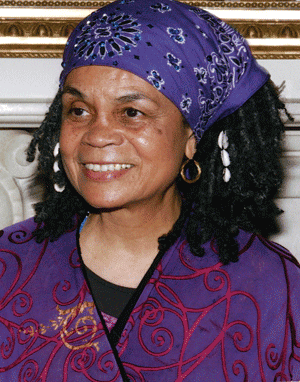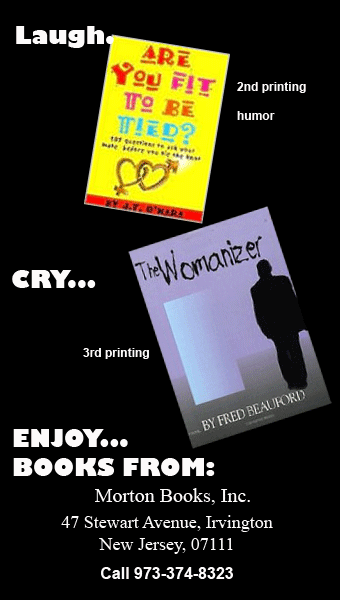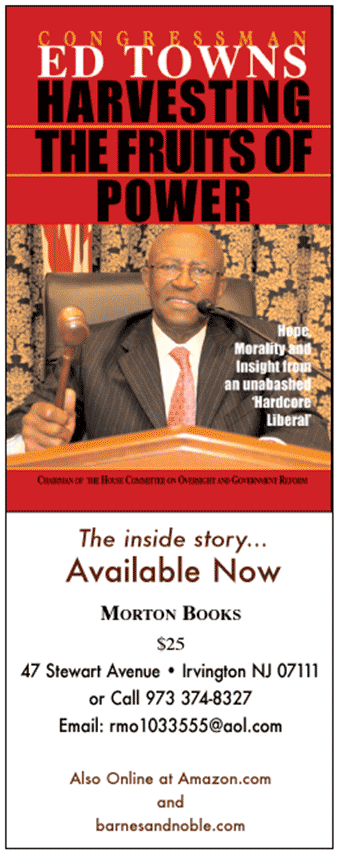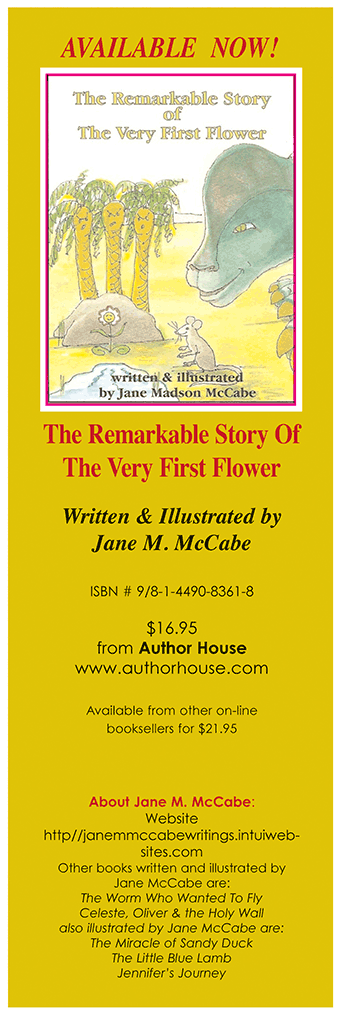REVIEWING
Playwright, Poet and Activist, Sonia Sanchez
I’m Black When I’m Singing, I’m Blue When I’m Not and Other Plays
“There are few writers alive who have created a body of work that both teaches and celebrates life, even at its darkest moments.”
Haki Madhubuti, “Sonia Sanchez, The Bringer of Memories”
by Brenda M Greene

At the Split the Rock Celebration of Langston Hughes, sponsored by the Association of Writing Conference in Washington DC, Sarah Browning, poet and Director of Split This Rock and DC Poets Against the War, introduced Sonia Sanchez as “a mighty, mighty poet.” These words symbolize the persona of Sonia Sanchez, a woman who is a mighty poet, playwright, teacher and literary activist and who over the last five decades has provided generations of writers, artists, young people and students with poetry, prose and actions that critically examine the impact of politics, race, homophobia, war, violence and class struggle on the lives of people within this nation and within our global society.
“Our country is founded on revolution,” Sanchez reminded the audience at the tribute to Langston Hughes. “Engagement in the struggle for peace and freedom is important to the survival of a people and those who are passive will not survive,” she continued. Her talk moved to her reflections on going to Cuba and meeting Nicolas Guillén, a poet who had an influence on Langston Hughes. Hughes and Guillén, born in the same year, were poets who were committed to exploring issues of social justice. Sanchez, recalling the work of these two poets, emphasized the importance of reminding our students of the value of struggle and resistance and of informing them that the survival of their communities, their nations and their future were intertwined with struggle and resistance. She also underscored the fact that as teachers and writers, we cannot be afraid to empower our students with the strategies and tools they will need to effect change. In her view, we must challenge our students and provide them with opportunities to raise questions. In effect, as educators and more specifically as artists, that is our responsibility.
As Sanchez spoke of the responsibility of the artist and the educator, I was reminded of those artists who are viewed as “suspect,” for in their roles as visionaries and activists, they continually raise questions and challenge the status quo. It is the artist who is on the front line, who says what needs to be said, who uses the creative arts and the literary, visual and performing arts to become the soothsayer, or the modern day griot. The artist depicts the beauty of life as well as the harsh realities of life; he/she is the one who celebrates, portrays and embraces the human experience from different perspectives. The artist is thus a conundrum, an enigma, and an individual who will not and cannot be defined in conventional ways.
These are the thoughts that I reflected on after reading the collection of plays and essays, I’m Black When I’m Singing, I’m Blue When I’m Not and Other Plays of Sonia Sanchez, edited by Jacqueline Wood. I knew of Sanchez as the progressive, political and revolutionary poet from the Black Arts Movement, the small, but powerful, energizing and dynamic young woman who wore a huge afro and had a soft yet piercing voice that implored us to live purposeful lives.
Often the featured poet in the late 60s and early 70s on Ellis Haizlips’s Soul, a black cultural arts and political program which aired on WNYE from 1968 to 1973, Sanchez was one of the few black woman poets who symbolized the role and the impact that women had in the Black Arts movement. Thus, the image of Sonia Sanchez as a playwright was not what came to mind when I thought about her. Although I knew that she had written in other genres, and I knew that she was viewed as a progressive and radical black female poet, I was not aware that among playwrights such as the legendary playwright Ed Bullins and the progressive poet, playwright and activist Amiri Baraka, Sonia Sanchez had earned the distinction of being a significant Black Arts playwright who blended prose and poetry to depict the conflicts, desires, tragedies and the social and political situation of African Americans in the United States of America. Bullins, recognizing the impact of Sanchez’s plays, commissioned her first play, The Bronx is Next, which is also one of the plays that is part of the anthology I’m Black When I’m Singing, I’m Blue When I Ain’t and Other Plays.
In the introduction to this collection of plays, Jacqueline Wood, associate professor of African American literature at the University of Alabama, presents an historical, sociological and political analysis of Sanchez’s works and notes that like Baraka, Sanchez emphasizes the role of drama as central to the revolutionary struggle. As poet Haki Madhubuti remarks in his essay “Sonia Sanchez: The Bringer of Memories,” Sonia is known for her poetry but she is also a first-rate playwright and an accomplished children’s writer who has made a contribution to short fiction.
I’m Black When I’m Singing, I’m Blue When I Ain’t and Other Plays illustrates the ease with which Sanchez moves from poetry to drama. In her essay in the anthology, “Poetry Run Loose: Breaking the Rules” Sanchez reflects on her thought process in writing plays. She notes that while writing a poem, there are so many voices that surface, that upon further reflection, realized that these voices worked better in a play. Therefore, her embracing of drama expanded the poetic form, thus becoming a blending of poetry and prose.
A conversation that she has with Ed Bullins in the anthology, Preface to Uh, Uh: But How Do It Free Us? further underscores her reflections on playwriting. She states, “... the two most important words in ‘playwright’ is write plays. Meaning that you try to show what is right and what is to be played right.” Sanchez thus saw the play as an opportunity to expand upon what she was limited by in her crafting of poems.
The collection of plays, I’m Black When I’m Singing, I’m Blue When I’m Not and Other Plays, symbolizes Sonia’s evolution as an activist, woman warrior and humanitarian and as an intergenerational bridge builder for people from varied ethnic groups, races and genders. In this seminal collection of seven plays and two essays, literary scholar Jacqueline Wood provides a comprehensive introduction on Sonia Sanchez as a poet, playwright and essayist, as well as a discussion of the historical and literary significance of her work and her plays from the 1960s through 2009. Sanchez, in the essay, “Ruminations and Reflections,” reprinted from the seminal book of literary criticism on Black Women Writers published by Mari Evans in 1984 and in the essay “Preface to UH, Uh; But How Do It Free Us” reflects on her writing process and philosophical writing stance.
I’m Black When I’m Singing, I’m Blue When I’m Not and Other Plays highlights the impact that Sonia Sanchez had on Black experimental theatre in the late 1960s and early 1970s. As a playwright in a male-dominated culture that was informed by a philosophy of Black cultural nationalism, Sanchez was not initially recognized as a significant playwright in the Black Arts era. Her closest contemporaries included Barbara Ann Teer, Aisha Raman and J. E. Franklin. It is clear that Bullins was a visionary and his decision to publish her plays positioned her as a major woman playwright in the Black Arts movement and as the foremother of playwrights such as Ntozake Shange and Suzanne Lori-Parks.
Using language that captivates Black speech patterns and oral language in precise and powerful ways, the collection of plays includes The Bronx is Next (1968), Sister Son/ji (1969), Dirty Hearts (1971) Uh, Uh: But How Do It Free Us? (1974), the title play I’m Black When I’m Singing, I’m Blue When I’m Not (1982) and 2 x 2 (2009). These plays, rooted in an African American centered culture, center the Black woman and highlight the strength and endurance of Black women as well as issues of racism, poverty, social injustice, sexism and oppression in all of its forms. In particular, The Bronx is Next is a critique on Black male chauvinism and sexism, as well as an exposé on what Black women endure in the raising of their sons and in their struggle to survive as single parents. Sanchez holds both men and women accountable in this play. And in Sister Son/ji, Sanchez emphasizes the importance of memory and the cyclical nature of time in our lives. Sister Son/ji, as an elder African American woman, reflects on her role in the revolutionary arts movement and the sexism encountered by young Black women.
Although Sanchez’s plays did not receive theatrical reviews in major and commercial media, they highlighted vital issues in the Black community and employed elements of performance that created a communal and culturally rich experience for the audience. A plethora of reality-based themes of activism, struggle and community, as well as rich patterns of music and rhythm, permeate her plays as they do her poems.
The poetic form is at the core of Sanchez’s plays and in describing her creative process for writing poetry and plays, she comments on her awareness of this poetic form. She views her writing as entering into and engaging in a dialogue with the reader and audience. To accomplish this, she works at providing the reader and audience with words and scenes that stir their emotions and that cause them to cry, to laugh, to reflect or to actively respond in some way.
The element of chanting is an important aspect of the delivery of her message and in her essay on “Ruminations and Reflections,” she informs us of the historical significance of chanting. Chanting calls upon the history of Black characters and simultaneously has the historical effect of old chants; it inspires action and harmony. As listeners, viewers, and witnesses of her readings and performances, we experience the effect of this chanting, for Sanchez, when reading her poetry, does not simply read it; she sings and takes us through chants that connect us to our ancestral roots and culture. Her voice becomes an instrument, adding to the richness and vibrancy of layered poetry and prose that feeds our spirit, our emotions and our sense of humanity.
The play for Sanchez is a longer poem that contains a plot, representative characters, movement and a denouement and that provides the reader with more spaces in the text upon which to reflect. Because Sanchez is concerned with connecting to the audience, she is not satisfied with the writing of a play until it has been staged, for in its staging, the play takes on a life of its own. Her title play of the anthology, I’m Black When I’m Singing, I’m Blue When I’m Not really epitomizes this concept. The main character, Reena, who embodies the stories of three Black women (reminiscences of Ma Rainey, Bessie Smith and Billie Holiday) in the music industry, hums on the stage as she moves in and out of reality.
Through the socially conscious and politicized language and themes in her plays, Sanchez reminds us of the significance of our cultural roots and of what it means to be a selfless and conscious humanitarian in this world. Whether at a poetry reading with Amiri Baraka, a hip hop performance with Talib Kweli, Mos Def or Ursula Rucker, or a panel discussion at a literary or academic conference, Sanchez takes us on a rich, historical and cultural journey of music and song centered on issues of politics, feminism, love, humanity and loss.
Sanchez’s most recent book is Morning Haiku (2011). She is the author of over 16 books, including Like the Singing Coming Off the Drums: Love Poems (1998); Does your house have lions? (1995), which was nominated for both the NAACP Image and National Book Critics Circle Award; Wounded in the House of a Friend (1995); Under a Soprano Sky (1987); Homegirls & Handgrenades (1984), which won an American Book Award from the Before Columbus Foundation; I've Been a Woman: New and Selected Poems (1978); A Blues Book for Blue Black Magical Women (1973); Love Poems (1973); Liberation Poem (1970); We a BaddDDD People (1970); and Homecoming (1969). Her published plays are included in I'm Black When I'm Singing, I'm Blue When I Ain't (1968) and her books for children include A Sound Investment and Other Stories (1979), The Adventures of Fat Head, Small Head, and Square Head (1973), and It's a New Day: Poems for Young Brothas and Sistuhs (1971). In addition to being a contributing editor to Black Scholar and the Journal of African Studies, she has edited two anthologies: We Be Word Sorcerers: Twenty-five Stories by Black Americans (1973) and Three Hundred Sixty Degrees of Blackness Comin' at You (1971).
References
Madhubuti, Haki. “Sonia Sanchez: The Bringer of Memories,” Black Women Writers
(1950-1980) A Critical Evaluation, ed. Mari Evans (New York: Anchor Books, 1984), 419 – 432.
Sonia Sanchez, I’m Black When I’m Singing, I’m Blue When I’m Not and Other Plays,
edited by Jacqueline Woodson. Durham: Duke University Press, 2010.






